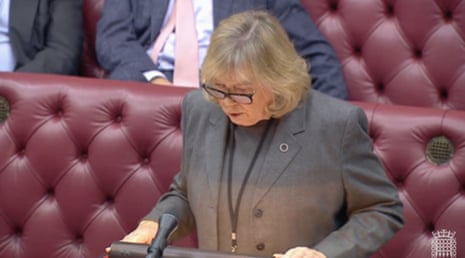Sunak’s asylum plans condemned by campaigners as ‘deeply disturbing’ and against international law
Organisations that campaign on behalf of refugees have strongly condemned the plans announced by Rishi Sunak today.
Enver Solomon, chief executive of the Refugee Council, said:
Without safe routes [asylum seekers] have no choice but to take dangerous journeys.
The prime minister failed to set out any concrete plans to expand these routes through a resettlement programme or an expansion in family reunion visas.
Instead this government wants to treat people who come to the UK in search of safety as illegal criminals.
This is deeply disturbing, flies in the face of international law and the UK’s commitment as a signatory of the UN convention on refugees to give a fair hearing to people who come here in search of safety and protection.
Many people from Albania face real danger and persecution – we must not turn our backs on them or any other nationality seeking asylum.
And Sile Reynolds, head of asylum advocacy at Freedom From Torture, said:
The backlog in asylum decision making is an inexcusable administrative failure but instead of taking the opportunity to fast-track grants for clearly well-founded claims to clear the backlog, the prime minister is recycling unethical and unworkable gimmicks.
Fast-tracking refusals and removals based solely on nationality or method of arrival is a dangerous, one-size-fits-all repackaging of a policy that risks breaching our international obligations to protect refugees …
As we know from our work with torture survivors, signs of persecution can often be hidden, complex and difficult to identify.
It is crucial that all claimants receive individualised assessments and are given adequate legal advice and access to appeal to ensure nobody is returned to face torture or even death due to bad decision-making.
Updated at 11.26 EST
Key events
Filters BETA
Key events (28)Rishi Sunak (37)Keir Starmer (5)Suella Braverman (3)Boris Johnson (3)
Plaid Cymru and Lib Dems urge Welsh Labour government to consider using its tax-raising powers
Steven Morris
Opposition parties in Wales have called on the Welsh government to consider raising the rate of income tax to combat the “perfect storm” of financial pressures it is facing.
During a debate on the Labour government’s draft budget, the finance minister Rebecca Evans said the economy and public services were fragile but announced spending plans aimed at protecting the most vulnerable.
Evans said an extra £165m is being allocated for NHS Wales to help protect frontline services and an additional £227m is being provided to local government to help safeguard the services delivered by councils, including schools.
The draft budget also provides an additional £18.8m for the discretionary assistance fund, which provides lifeline emergency cash payments to people facing financial hardship and about £70m will be provided to increase the pay of social care workers.
Evans said:
This is a budget in hard times, which will help to protect frontline public services as far as we can in the face of a perfect storm of financial pressures.
Adam Price, the leader of Plaid Cymru, said:
We believe the Welsh government needs to look at using the income tax powers it has available. We realise this isn’t a cost-free or pain-free option but we are in a time of crisis and we campaigned for those powers so we could avail ourselves of them at times precisely like these.
The leader of the Lib Dems in Wales, Jane Dodds, called on the government to “look at our tax raising powers”, adding: “I would like to see some modelling on how we can look at the upper bands of tax and what that could deliver.”
Mark Drakeford had earlier said the idea of raising taxes “at a time when people cannot buy food and they cannot afford to pay for energy” was “astonishing”.
Updated at 12.21 EST
Here is a Guardian video with highlights from Rishi Sunak’s statement to MPs, and Keir Starmer’s response.
‘Unworkable gimmicks’: Starmer criticises Sunak’s UK asylum strategy – video
Government agrees to independent review of impact of photo ID law on local elections in bid to avert Lords defeat
In the House of Lords, peers have started debating regulations to bring into force the law requiring voters to present photo ID at polling stations. This will apply for the first time at the English local elections next year.
In an unusual move, the Liberal Democrats have tabled as an amendment a fatal motion – one that would block the regulations.
Lady Scott, a communities minister, opened the debate for the government. Despite reports that electoral administrators are concerned about the impact the new law will have on the local elections in May, she said they were preparing to implement the new rules. Asked why the chair of the Local Government Association, who is a Conservative, is calling for the plans to be abandoned, she said she did not know.
She would know if she had read this story. James Jamieson, the LGA chair, said: “We are concerned that there is insufficient time to do this ahead of the May 2023 elections, and for this reason are calling for the introduction of voter ID requirements to be delayed.”
Scott urged peers to reject the Lib Dem motion. She said it was not usual for peers to reject regulations that were implementing legislation already passed by parliament.
But she sounded more conciliatory about another amendment, tabled by Labour. This would not kill the regulations for good (like the Lib Dem one), but it “regrets” the implementation of the new photo ID rules so quickly and calls for a review of the operation of the rules at the local elections, overseen by a new select committee.
Scott said the government was already committed to a review. If Labour agreed not to push its amendment to a vote, she said the government would agree to conclude this by November 2023, and allow an external agency to produce the report.
During her speech Scott was asked why certain types of photo ID were acceptable for older people but not younger people. The i’s Paul Waugh has a good example.
What’s really shocking is that although the govt rightly *expanded* eligible photo-ID to include bus/train/travel passes for the elderly, they’ve *refused* to accept travel passes for the young. pic.twitter.com/xdBN5NhIyT
— Paul Waugh (@paulwaugh) December 10, 2022
Scott was unable to answer. She just claimed this matter had been addressed when peers debated the bill.
The debate is still going on, but Labour has welcomed the concession from Scott. Scott said an “external research ag agency” would write the review report, and Labour takes this as meaning the review will be properly independent.
 Lady Scott Photograph: HoL
Lady Scott Photograph: HoL
Updated at 12.13 EST
Partygate: ministers accused of writing ‘blank cheque’ for Boris Johnson legal bills
Ministers have been accused of writing a “blank cheque” for Boris Johnson’s legal bills, as it emerged taxpayer-funded support was being extended to help defend him against claims he misled parliament over Partygate, my colleague Aubrey Allegretti reports.
No 10 says Sunak’s pledge to eliminate asylum claims backlog only relates to ones made before June
 Aletha Adu
Aletha Adu
One of the bolder claims in Rishi Sunak’s statement was that the government expected to “abolish the backlog of initial asylum decisions by the end of next year”. (See 1.30pm.)
But at afternoon lobby briefing the PM’s spokesperson said this pledge only related to claims made before June this year, when the Nationality and Borders Act came into force. There were 92,601 claims in that category, he said.
Asked why Sunak would not commit to reducing the entire backlog, the spokesperson said:
It wouldn’t be right to prioritise more recent claims. It would be right to focus on legacy claims that predate the introduction of the Act
Updated at 11.34 EST
Sunak’s asylum plans condemned by campaigners as ‘deeply disturbing’ and against international law
Organisations that campaign on behalf of refugees have strongly condemned the plans announced by Rishi Sunak today.
Enver Solomon, chief executive of the Refugee Council, said:
Without safe routes [asylum seekers] have no choice but to take dangerous journeys.
The prime minister failed to set out any concrete plans to expand these routes through a resettlement programme or an expansion in family reunion visas.
Instead this government wants to treat people who come to the UK in search of safety as illegal criminals.
This is deeply disturbing, flies in the face of international law and the UK’s commitment as a signatory of the UN convention on refugees to give a fair hearing to people who come here in search of safety and protection.
Many people from Albania face real danger and persecution – we must not turn our backs on them or any other nationality seeking asylum.
And Sile Reynolds, head of asylum advocacy at Freedom From Torture, said:
The backlog in asylum decision making is an inexcusable administrative failure but instead of taking the opportunity to fast-track grants for clearly well-founded claims to clear the backlog, the prime minister is recycling unethical and unworkable gimmicks.
Fast-tracking refusals and removals based solely on nationality or method of arrival is a dangerous, one-size-fits-all repackaging of a policy that risks breaching our international obligations to protect refugees …
As we know from our work with torture survivors, signs of persecution can often be hidden, complex and difficult to identify.
It is crucial that all claimants receive individualised assessments and are given adequate legal advice and access to appeal to ensure nobody is returned to face torture or even death due to bad decision-making.
Updated at 11.26 EST
In its response to Rishi Sunak’s statement, Amnesty International UK said it was “littered with errors of both law and fact”. (See 2.05pm.) Asked to say what these were, a spokesperson said that Sunak spoke about people coming to the UK illegally, when they were “exercising their entirely legitimate right to seek asylum in the UK”; that he said people were cheating the system, when they were making legitimate claims for asylum; and that he said they were breaking the rules, when they were “exercising their rights by the only means the UK system permits – because it requires claims to be made in the UK and provides no visa for anyone to make a journey for that purpose”. The spokesperson added: “These are profound errors of fact and law.”
Rishi Sunak told officials at the National Crime Agency, which will play a leading role in his new Small Boats Operational Command (see 1.30pm), that tackling Channel crossings was a “massive priority”. He said:
I’ve made it a priority of mine to make announcements on how we’re going to do that and you guys are a big part of that so thank you for the work you’re already doing,” he said.
One of the things we said today was getting you extra resources so we can increase your upstream activity disrupting organised crime in Europe, which you do brilliantly.
Sunak also said the government wanted to learn from the success of the measures taken to stop people entering the UK irregularly in the back of lorries.
In conversation with one official, who said he had worked on an investigation into the use of the vehicles to bring people across the border, Sunak said:
Well on that, we’ve done a very good job of actually over the past few years. We need to kind of learn from that experience and apply that to the small boats side.
 Rishi Sunak meeting officials working on small boats policy in London today. Photograph: Alastair Grant/AP
Rishi Sunak meeting officials working on small boats policy in London today. Photograph: Alastair Grant/AP
Updated at 11.07 EST
Kevin Rawlinson
Nimco Ali, a former adviser to the Home Office, has explained that she quit because she could not work with a home secretary who described people seeking refuge in the UK as invaders. Writing for the Evening Standard today, she has said:
When Suella Braverman referred to the refugee crisis as an invasion I knew there was no way I could work with her, nor could I keep quiet about this dark path the government seeks to continue.
I had been an adviser to her Home Office, but no longer.
Words are powerful. I have been raised to remember that before you spit out words from your mouth, think first. What you say can never be taken back and forgotten.
Ali was appointed an independent adviser by the home secretary Priti Patel, who herself pursued aggressive policies aimed at deterring people from seeking refuge in the UK; portraying them as “economic migrants”, rather than people she would accept were in genuine distress, and trying to force through the Rwanda deportation policy.
But the social activist wrote:
Being mindful of what you say as a politician is critical to our democracy. Over the last few years, I have given certain people the benefit of the doubt when it comes to stupid jokes. But sadly now we must admit that the desire to garner headlines with outlandish claims and policies untethered from reality is corroding our political system and impacting the lives of millions.
Ali, a friend and confidante of Carrie Johnson and her husband, the former prime minister Boris Johnson, warned the Tories they risk losing voters such as her if they pursue ever more rightwing policies.
Updated at 10.48 EST
Adam Afriyie says he will not quit as Conservative MP after bankruptcy order
Adam Afriyie, the Conservative MP who has been declared bankrupt, says he is standing down at the next election, but will not quit parliament before then.
It is widely assumed that people declared bankrupt cannot serve in parliament. But that only applies when a bankruptcy restrictions order or a debt relief restrictions order is in place, and that does not seem to be the case here.
My colleague Jessica Elgot has the full story.
Updated at 10.08 EST
In an unrelated development – or perhaps not unrelated; Rishi Sunak is clearly hoping that Labour will vote against his proposed new asylum law next year, and that it will function as a wedge issue, with Keir Starmer on one side and a majority of voters on the other – the polling company Savanta has published the results of an MRP poll suggesting that Labour is on course for a 314-seat majority. Yes, that is right; not 314 seats, but a majority of 314.
MRP stands for multilevel regression and post-stratification (MRP) and it is a polling method that takes conventional voting intention data and uses it to assess what might happen on a constituency by constituency basis by cross-referencing the demographic polling data with what is known about the demographic makeup of particular constituencies. Ever since an MRP poll suggested the Tories were on course to lose their majority in 2017, when conventional polling said the opposite, they have been taken very seriously.
But would the Tories really be reduced to just 69 seats, as the MRP model suggests? Savanta says:
The poll, Savanta’s first MRP since Labour conference and conducted in conjunction with Electoral Calculus, gives Labour a 20pt voting intention lead which, when converted to seats would more than double the number of MPs they currently have in Westminster.
The poll shows that the Conservative party would be likely wiped out in much of the north of England, with the model suggesting that the party would not hold a single seat north of Lincolnshire, while also losing all of the seats in London, and conceding many seats in the south-west to Labour and the Liberal Democrats.
Martin Baxter, the founder of Electoral Calculus, which worked with Savanta on the data, expresses caution. He says:
This is an interesting poll, because it is the first MRP we have done since the Conservatives slid so far behind Labour, and therefore we have very little to compare it with. MRP results are different to applying uniform national swing (UNS) to the 2019 general election baseline. The UNS prediction would give the Conservatives about 24 more seats than this model.
Previous elections suggests that MRP is usually more accurate than UNS predictions, but we are in uncharted electoral waters and uncertainty is higher than usual.
Updated at 10.34 EST
https://news.google.com/__i/rss/rd/articles/CBMicmh0dHBzOi8vd3d3LnRoZWd1YXJkaWFuLmNvbS9wb2xpdGljcy9saXZlLzIwMjIvZGVjLzEzL3Jpc2hpLXN1bmFrLWNvbnNlcnZhdGl2ZXMtdG9yeS1sYWJvdXItc3RyaWtlcy1sYXRlc3QtdXBkYXRlc9IBAA?oc=5




